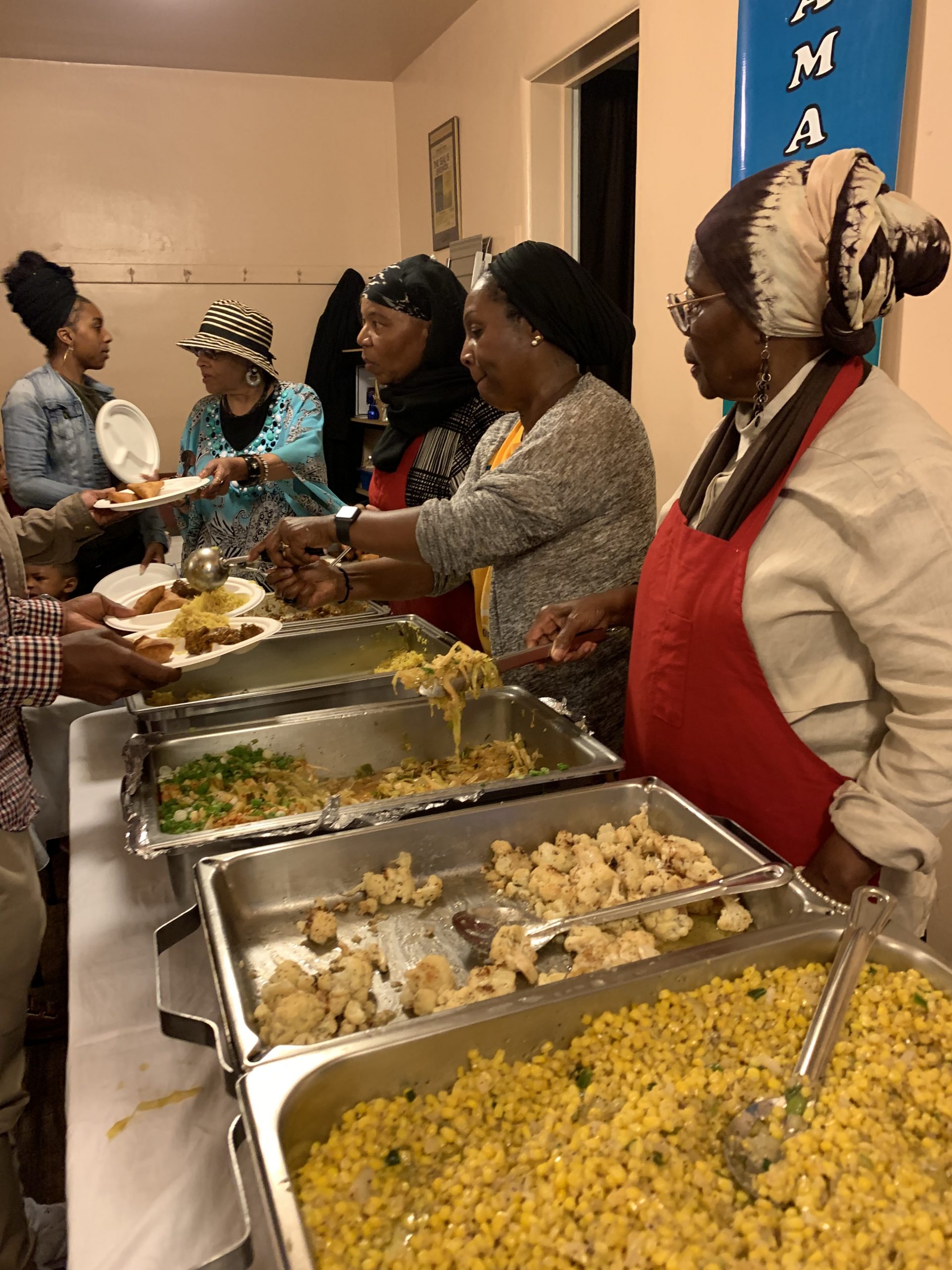
The Holy Qur’an says, “…make your dwellings into places of worship, and establish regular prayers.”
With local mosques currently shuttered by the Alameda County shelter-in-place order, Oakland Muslims have turned their homes into places of worship for the month of Ramadan.
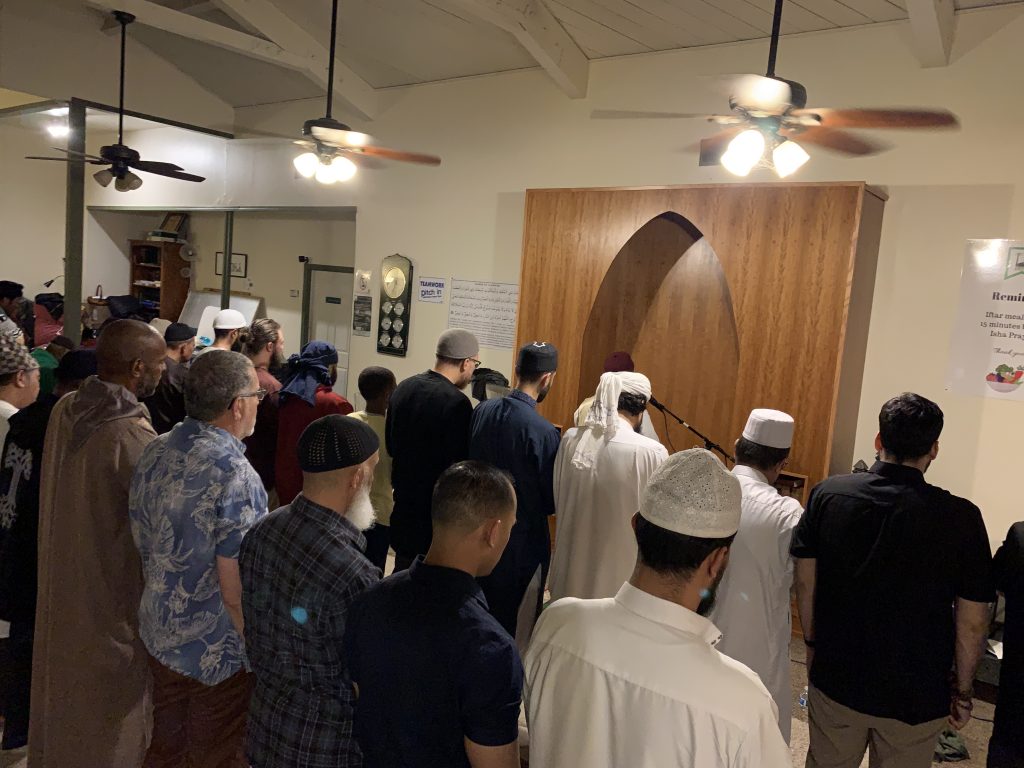
Muslims believe that Prophet Muhammad (pbuh) first received revelation during Ramadan, the ninth lunar month of the Islamic calendar. During daylight hours, Muslims fast, or abstain from food, water, and sex. Around sundown, people gather for iftar, nightly meals to break the fast.
Oakland mosques are centers for Islamic community life. It’s where many Muslims make the five daily prayers, attend Arabic language and religious studies classes, or buy a bean pie and network after jummah. Normally during Ramadan, mosques are filled or families visit each other for iftars. The ban on gatherings kept Muslims at home. And while many miss the communal aspects of Ramadan, many have been grateful to bond with family and focus on worship.
“Being home alone and my whole outside world being pretty much shut down is paving the road for me to focus and concentrate on my relationship with my Creator.”
Amelah El-Amin
Finding Solace During Shutdown
“Being home alone and my whole outside world being pretty much shut down is paving the road for me to focus and concentrate on my relationship with my Creator,” Amelah El-Amin said. El-Amin, a recent Oakland Voices graduate, said Muslim families experiences with COVID-19 vary. Some are “finding solace in the downtime” while others may be “feeling cabin fever and some hopelessness based on the thought that this could go on for another couple months or so,” El-Amin said.
Bilal Mustafa’s days haven’t changed much. But his nights have. During the day, Mustafa delivers goods to other veterans sheltering-in-place. At night, he spends time with his family.
“[Shelter-in-place] brings me back to my beginnings,” he said, reminiscing on time spent with family during his first Ramadans after become Muslim. Even though he works every day, he’s prayed every jummah on time this Ramadan. (Jummah is Friday congregational prayers.) Although he misses nights at the masjid, especially “the African jollof rice and big ol’ chunks of fish on Senegalese night,” he is grateful for family time. “My children are normally at college and other places,” Mustafa said. “Now I can have jummah with them at home.”
Sundiata Al-Rashid feels the same. “This is how Ramadan was when I first started practicing Islam. There wasn’t masjids in every town when I first started fasting,” Rashid said. “It’s like an old school ‘Black Ramadan.’ Black folks fast, have a meal, then kick back ‘til suhoor. We used to break our fast and go to Merritt Bakery and have a hot apple pie and some ice cream.”

Oakland Muslims
The Bay Area has one of the largest Muslim populations in the U.S. Nearly a quarter million Muslims live in the six Bay Area counties, according to the 2013 Bay Area Muslim Study.
Oakland’s first known Muslims were part of the Nation of Islam. Oakland’s first first mosque opened in West Oakland on Henry Street in 1959, according to FBI surveillance of Malcolm X. After the death of NOI patriarch Elijah Muhammad, his son Warith Deen Muhammad assumed leadership of the organization and shifted members towards Sunni Islam. In 1976, Oakland’s first masjid opened: Masjidul Waritheen, which later operated the Clara Muhammad School.
Since the 1980s, growth and migration has led to a proliferation of mosques and islamic centers in the Town. There are about 12 mosques in Oakland today.
Oakland has the largest concentration of African American Muslims in Northern California, nine percent in the Bay Area Muslim survey. Arabs were 23 percent of those surveyed and mainly lived in Oakland and San Francisco. Oakland also has East and West African Muslims, as well as Latino Muslims.
“It’s challenging not to be with my community every night at the masjid — which is the highlight of Ramadan. It’s a lot of self reflection alone and praying as a family at home. Alhamdillah it’s a blessing and yet makes me miss community more than ever.”
Madenh Hassan
Caring for others
Madenh Hassan is an 11th grade teacher at Oakland International High School, a school that serves recent immigrants, or “newcomers.” This Ramadan has enabled her to spend time with her family that she usually cannot due to work and her commute.
At home, she is balancing homeschooling a son with a disability and supporting her students. “He needs more than I can offer him sometimes. He misses his routine, his school,” Hassan said.
Her students feel depressed and isolated and cannot focus as they experience challenges with school and housing. “I miss my students and being able to support them academically. Most of what we are doing with students is case management and mental health support.”
Hassan also misses the community connection as masjids. “It’s challenging not to be with my community every night at the masjid — which is the highlight of Ramadan,” she said. “It’s a lot of self reflection alone and praying as a family at home. Alhamdillah it’s a blessing and yet makes me miss community more than ever.” Alhamdilillah means ‘All Praises due to God’ (Allah).
Virtual Iftars and Webinars
Many Muslims have also joined Zoom and Facebook Live sessions. Lighthouse Mosques hosts daily reminders on its Facebook page. Last week, the Bay Area chapter of the CAIR, the Council of American Islamic Relations, hosted a webinar on Black, Palestinian, and Yemeni community organizing and solidarity. (This writer hosted a conversation with Imam Faheem.)
With the global ummah (community) being at home, Muslims have been able to connect across time zones.
Pandemic a ‘Wake-Up Call‘
As the month comes to a close, whether lonely or grateful to be with family, many felt that Ramadan amid coronavirus also has spiritual significance.
“It’s definitely Allah trying to tell us something,” Rashid said. “It’s a wake up call because Muslims and non-Muslims haven’t been taking things as serious as we should.”
Imam Faheem Shuiabe has led Oakland’s oldest mosque, Masjidul Waritheen, for 38 years. Imam Shuiabe encourages the community to use Ramadan to strengthen their beliefs. “Strengthen everything. Strengthen your taqwa (“God consciousness”), iman (faith), and knowledge,” Shuaibe said. Considering the misinformation being spread during the pandemic, he added, “Knowledge is what Allah gives us to protect us from fear.”
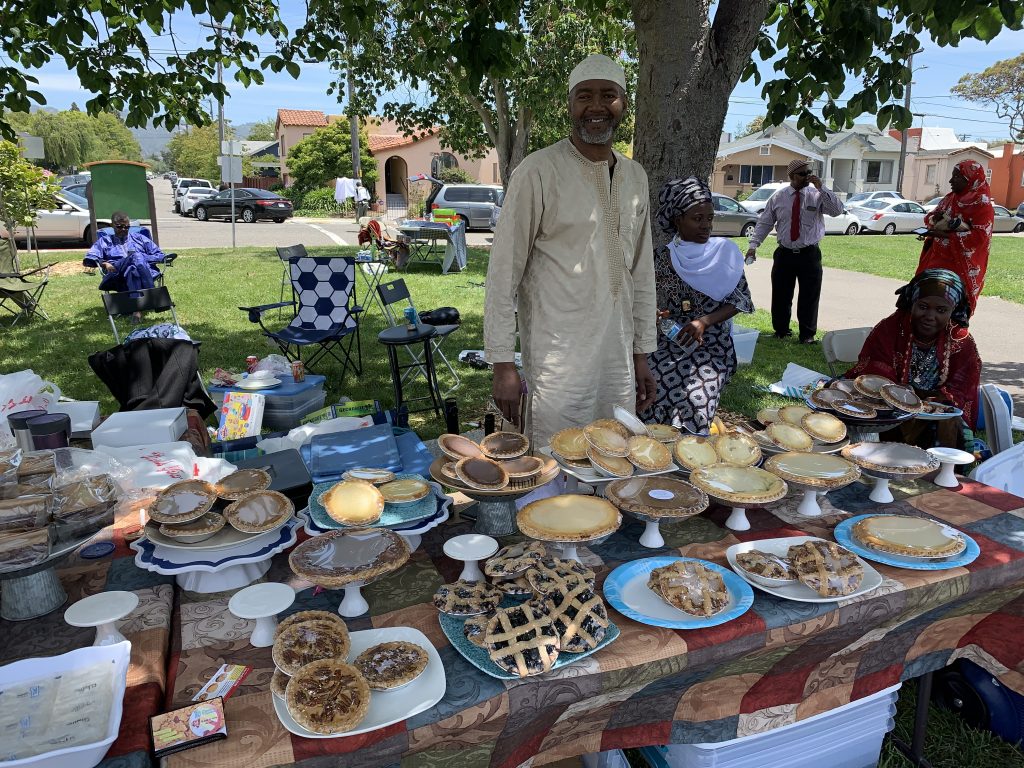
Eid celebrations mark end of Ramadan
Muslims celebrate the end of Ramadan with Eid. Instead of hosting a “Unity Eid” gathering at Mosswood Park or South Berkeley’s San Pablo Park this year, Lighthouse Mosque is hosting a “Drive Thru Unity Eid.” The Eid will be livestreamed either on Saturday or Sunday, depending on when the new moon is sighted. The Northern California Islamic Council will be hosting an online Eid also.

Virtual Services during COVID-19
- Masjidul Waritheen, 1:30PM hosts Friday prayers via Vimeo and Facebook (Imam Faheem hosts additional lectures throughout the week)
- Lighthouse Mosque hosts nightly reminders at 6:30PM in Ramadan through its Facebook page
Oakland mosques online
- Masjidul Waritheen
- Lighthouse Mosque
- Islamic Cultural Center of Northern California
- Oakland Islamic Community Center
- Oakland Islamic Center
- Masjid Al Salam
- Muhammad Mosque No. 26B.
Rasheed Shabazz is a multimedia storyteller, urban planning historian, and youth development professional based in the Bay Area. He is co-director of Oakland Voices. He recently completed his Masters of City and Regional Planning at UC Berkeley.

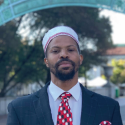
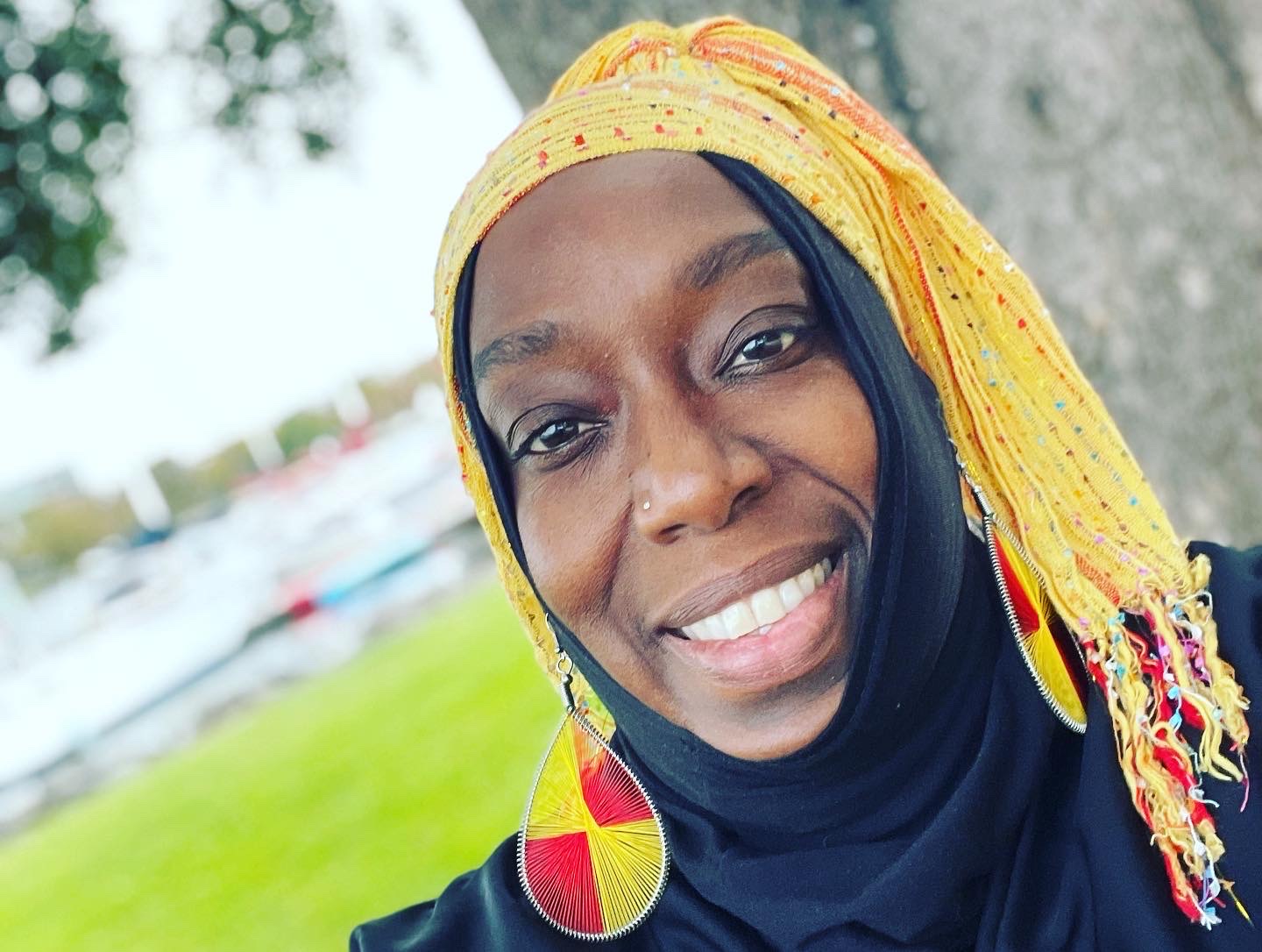


2 Trackbacks / Pingbacks